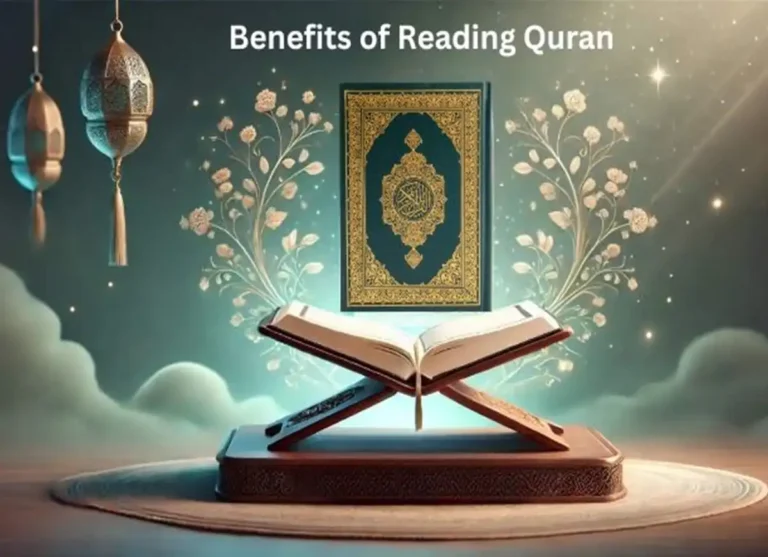Imām Rāzī writes:
Imam Razi- “When acquisition of knowledge as the meaning of hukman has been established, it is equally established at the same time that he (the Prophet Ibrāhīm) prayed to Allah for the kind of knowledge that guaranteed his total absorption in the divine qualities and attributes, a knowledge whose purity serves as a self-adjusting filter to drive out all impurities.”
Imam Razi’s Further Comments:
And this knowledge proves that the divine knowledge or consciousness develops in the heart of a creature by Allah’s will and Ibrāhīm’s supplication and include me among those whom You have rewarded with Your nearness is a pointer to the fact that for a creature to be saintly or virtuous is exclusively the outcome of Allah’s will. ( Imam Razi- , at-Tafsīr-ul-kabīr (24:148))
Imam Razi- Therefore, the acquisition of divine knowledge is made possible only by means of the virtuous and pious people. To be associated with them and to acquire divine knowledge through their mediation has been the practice of the prophet s.
Imam Razi- And any creature who desires the favor of Allah through the means of the pious and the saintly people, never feels frustrated and his prayer is invariably granted, and he is included among the virtuous people. Then he attains divine consciousness as is declared by Allah: And surely (even) in the Hereafter, they will be in the ranks of the righteous. (Qur’ān (al-Baqarah, the Cow) 2:130.)
Also Read: What is Justification of Istighāthah After Death?
![Write a note help according to Imam Razi andcomments? Imam razi, the creatures, Abū Dāwūd, sura at-Tawbah and quranmualim Learn Quran, Quran translation, Quran mp3,quran explorer, Quran download, Quran translation in Urdu English to Arabic, almualim, quranmualim, islam pictures, Islam symbol, Shia Islam, Sunni Islam, Islam facts],Islam beliefs and practices Islam religion history, Islam guide, prophet Muhammad quotes, prophet Muhammad biography, Prophet Muhammad family tree.](https://www.quranmualim.com/wp-content/uploads/2019/05/Write-a-note-help-according-to-Imam-Razi-and-comments-B.jpg)
There is irrefutable evidence of reliance on these righteous people for the fulfilment of their needs and the relief of their pains and troubles. In its support, the Qur’anic verse in which Allah is commanding the believers to associate themselves with the righteous is quite sufficient and conclusive. Allah says: O believers! Fear Allah, and remain in (the company of) the truthful (Qur’ān (at-Tawbah, Repentance) 9:119)
In this verse, Allah, on the one hand, is instructing the believers in the uniqueness and immutability of His Power; on the other hand, He is enjoining upon them to adopt the company of the truthful in order to elevate themselves to a position which the truthful have already attained. At another place, Allah says:
And follow the path of the (person) who turned towards Us. (Qur’ān (Luqmān, Luqmān) 31:15) Similarly, the prophet Yūsuf’s supplicat ion is also recorded in the holy Qur’ān: Take my soul at death as a Muslim and unite me with the righteous. (Qur’ān (Yūsuf, Joseph) 12:101)
The holy Prophet himself prayed to Allah using similar words. ( Ahmad bin Hambal transmitted it in his Musnad (5:191); Hākim, al-Mustadrak (1:516); T abarānī, al-Mu‘jam-ulkabīr (5:119,157 #4803,4932); and Haythamī in Majma‘uz-zawā’id (10:113))
Some people might object to the authenticity of the tradition, picking out flaws in its chain of transmission or coming out with some other frivolous remarks, but no believer can deny the credibility of the supplication by Yūsuf as it is recorded in the holy Qur’ān which is nothing but absolute truth.
Thus it is established that it has been the practice of the prophet s to mediate their supplications through the virtuous and the righteous. The recording of these forms of supplication in the Qur’ān is most probably intended to persuade the believers to follow the practice of the prophets.
Ibn-ul-Firāsī narrates that Firāsī said to the Prophet: ‘O Messenger of Allāh! Shall I beg you for something?’ He replied:
No, and if you can’t help begging, then you should beseech the pious and the righteous (for help). (. Abū Dāwūd narrated it in his Sunan, b. of zakāt (obligatory charity) 2:122 (#1646); Nasā’ī, Sunan, b. of zakāt (5:95); Ahmad bin Hambal, Musnad (4:334); Bukhārī, at-Tārīkhul-kabīr [7:138 (4/1/138)]; Bayhaqī, as-Sunan-ul-kubrā (4:197); Ibn ‘Abd-ul-Barr, at-Tamhīd (4:107); and ‘Alī alHindī in Kanz-ul-‘ummāl (6:502#16721).
Some people believe that the supplication of the pious and the virtuous is granted during their lifetime, but after death they cannot help anyone, as they themselves are helpless. They believe that the righteous are a source of help but only during their earthly existence, and it is disbelief to rely on them for help after their death.
The supporters of this view are victims of a grave misunderstanding because the reality is just the reverse. It is true as the green of the grass and the blue of the sky that Allah is the only source of blessing and no creature can arrogate this exclusively divine prerogative to himself.
If he does so, he is committing unabashed disbelief. Therefore, to think that the supplication is mediated through one of His favorites in his life and He t urns a cold shoulder to his supplication when he is dead smacks of a self-contradiction, as it tends to identify the saint with Allah as the source of help. The fact is that God Alone has the power to fulfil the needs of the creatures through the mediation of the saints whether they are dead or alive.
Those who object to making saints and the pious as means of help and assistance after death are obviously in the wrong groove. They are only fumbling in the dark and smashing their cluttered heads against the slippery walls of an unlighted tunnel, which leads into an even darker dungeon.
Their objections are grounded in the misconception that reliance on the saint s and the pious for the acquis it ion of Allah’s blessing is contingent on their manifest life while Allah’s dispensing of His blessings to His creatures through the saints and the pious is absolutely unrelated to the fact of their being dead or alive.
The traditions and the quotes of the Companions that follow are purported to eliminate the doubt s raised by these deniers. A wide spectrum of evidence is marshalled to prove the fact that it is not only valid to rely on the saints and the pious for help after their death but it has also been the practice of the prophets and Allah’s favorites. These are the people who can truly guide us and lead us to our salvation
![Write a note help according to Imam Razi andcomments? Imam razi, the creatures, Abū Dāwūd, sura at-Tawbah and quranmualim Learn Quran, Quran translation, Quran mp3,quran explorer, Quran download, Quran translation in Urdu English to Arabic, almualim, quranmualim, islam pictures, Islam symbol, Shia Islam, Sunni Islam, Islam facts],Islam beliefs and practices Islam religion history, Islam guide, prophet Muhammad quotes, prophet Muhammad biography, Prophet Muhammad family tree.](https://www.quranmualim.com/wp-content/uploads/2019/05/Write-a-note-help-according-to-Imam-Razi-and-comments-C-e1738924464947.jpg)
In This Article We will Discussed About Help According To Imam Razi‘ Comment
Recommended for You
Do not forget to click to God Help (Beliefs) and Istighathah, Faith Blogs and make sure to link back to the essay, also, do not forget to Subscribe our Channel Quran Mualim for more Soulful Quran recitation. If you have any questions, do not hesitate to comment under this post and I will happily answer you!
- How Many kinds of istighathah?
- Allah is Only Owner of The Universe?
- Write A Note of Tawassul or Istighathah ?
- What is The Prayers And Worship of Allah?
- How Many Relation Between Appeal For Help ?
- How many kinds of istighathah and Quran detail?
- What Do Companions Appeal For Help To Prophet?
- What is Life Immortal and After Death We Are Alive?
- Write About Appeal For Help According To Hadith Books?
- What Should We Appeal To The Prophet For Forgiveness?
- Write A Note Appeal For Help References To Hadith Books?
- What Will We Appeal To The Prophet The Day of Judgement?

![Write a note help according to Imam Razi andcomments? Imam razi, the creatures, Abū Dāwūd, sura at-Tawbah and quranmualim Learn Quran, Quran translation, Quran mp3,quran explorer, Quran download, Quran translation in Urdu English to Arabic, almualim, quranmualim, islam pictures, Islam symbol, Shia Islam, Sunni Islam, Islam facts],Islam beliefs and practices Islam religion history, Islam guide, prophet Muhammad quotes, prophet Muhammad biography, Prophet Muhammad family tree.](https://www.quranmualim.com/wp-content/uploads/2019/05/Write-a-note-help-according-to-Imam-Razi-and-comments-A.png)





